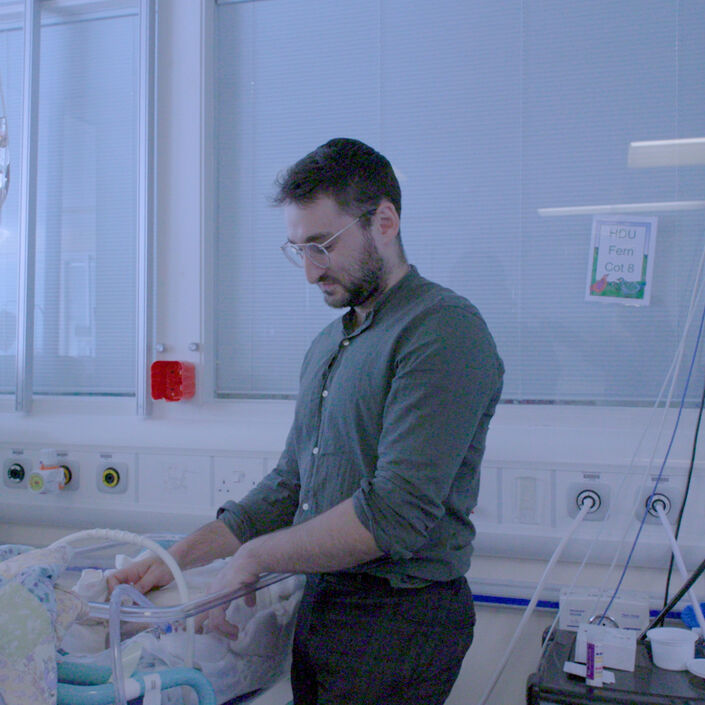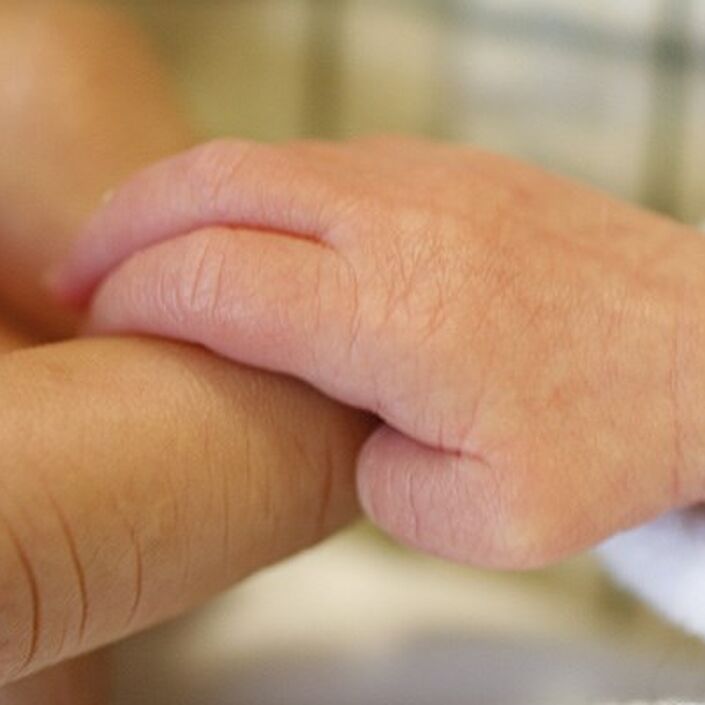If your baby was born seriously unwell, it is likely that you were separated from them soon after they were born. Arriving on a neonatal unit and watching the staff care for your baby can make many parents feel like they aren’t able to care for their baby as they would like.
Here are some things you can talk to your care team about to help you be close to your baby and involved in their care while on the unit:
Skin-to-skin
Sometimes called ‘kangaroo care’, this means placing your baby undressed onto your bare skin on your chest, so that your skin touches. This is shown to help you to connect with your baby, as well as calming them if they are feeling pain or stress. Mums, dads, brothers, sisters and other family members can do skin-to-skin.
Staff will let you know if your baby is ready to have skin-to-skin with you – sometimes you might need to wait until they are more stable.
Feeding
Most babies on the neonatal unit can have breast milk, donor breast milk, or formula milk. Your baby may not be able to be breastfed straightaway or may have expressed breast milk through a tube.
Whether you are tube feeding, breastfeeding or bottle feeding your baby, you can get involved. Many parents tell us that having skin-to-skin whilst feeding, expressing breast milk or giving their baby their first bottle feed gives them lasting memories that they treasure.
Washing and changing
The nurses and neonatal team can support you to wash your baby and change their nappy. This can feel hard when they are connected to wires and monitors. The nurses will show you the best way to do this to make sure your baby feels comfortable. Doing these things, sometimes called ‘your baby’s cares’, can help parents feel connected with their baby.
Getting to know your baby
Sometimes it might feel like you spend a lot of time just looking at your baby. This is really important. It can help you to learn how your baby shows signs of pain and discomfort, as well as when they are calm and content. This, combined with your natural intuition as a parent, will help you to help the doctors and nurses. Together, you can tell when your baby might need some intervention.
As well as medications, your baby’s symptoms can be soothed by gentle massage or comfort holding. Your care team can support you with this.
Taking your baby out
If your baby is able to leave the neonatal unit for periods of time, you may have the opportunity to spend time with your baby outside, perhaps in the hospital grounds. Seeing your baby out in a pram feeling the air on their skin can be a special experience.
Reading and singing with your baby
Reading a story, playing music or singing songs that are special to you can really help you to bond with your baby.
Capturing special moments
Special moments with your baby will stay with you forever. Capturing these lasting memories throughout your baby’s precious life, can be done in a number of ways:
• Taking photos
• Taking a small lock of hair
• Make handprints and/or footprints
• Make hand or foot sculptures
• Skin-to skin contact
• Playing special music
• Keeping special toys, jewellery or ribbons
• Keeping a keepsake box with cot cards and name bands
• Having a blessing performed
• Introducing your baby to friends and family
• Keeping a journal
Spiritual and psychological support
Many parents find it helpful to talk to the hospital chaplaincy service – they are experienced at providing emotional and spiritual support, for people of all faiths and those with none. Psychology and Family Support workers can also offer support. These teams can help you talk about your concerns, think through big decisions and advocate on your behalf if you would like help in getting your views across.



